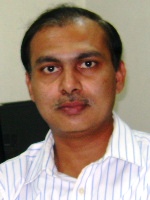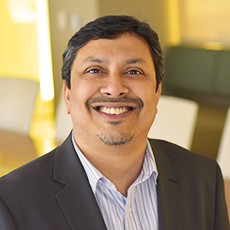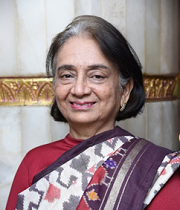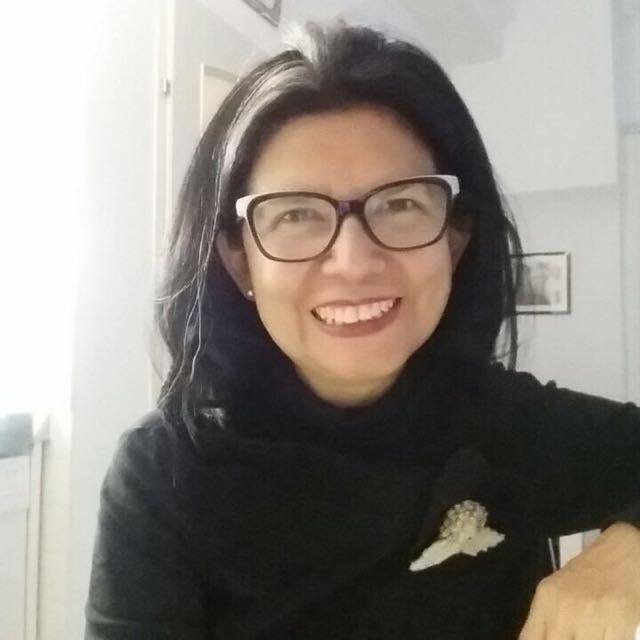|
|
Dinesh Abrol, Professor, ISID Dinesh Abrol is currently working at the Institute of Studies in Industrial Development (ISID) India, where he coordinates the ISID-PHFI collaborative research program on innovation, industry and public health. He is also a visiting professor at the Centre for Studies in Science Policy. Before that, he was chief scientist at the National Institute of Science Technology and Development studies (NISTADS). Abrol is known for his research work on pharmaceutical industry, intellectual property, innovation management, technology assessment and science, technology and innovation (STI) policy. His collaborative research projects include collaborations with the scholars contributing to the research institutions of Argentina, Brazil, China, United Kingdom and United States working on a wide range of interconnection topics arising out of the formulation of technology policies for latecomer countries with large populations and huge development deficit like India, Brazil and China. |
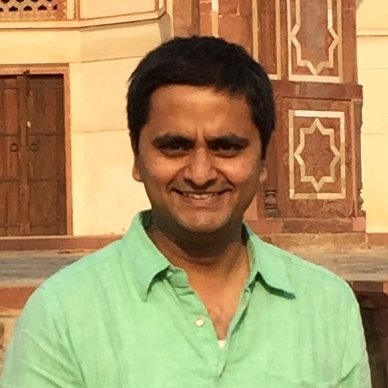 |
Ronald Abraham, Partner, IDinsight
Ronald is a partner at IDinsight Delhi where he provides significant evaluation, policy and management expertise. He has overseen IDinsight engagements in employment training, governance reform, education, and nutrition in India. He has significant prior experience in education policy research, microeconomic research and program management at Pratham and the Centre for Policy Alternatives in New Delhi.
Ronald holds a bachelor’s degree with honors in Economics from St. Stephen’s College, Delhi University, and an MPA in International Development (MPA/ID) from Harvard Kennedy School.
|
|
|
Pramod Aggarwal, Climate Change, Agriculture and Food Security Regional Program Leader for South Asia, Consultative Group on International Agricultural Research (CGIAR) Prof. Pramod Aggarwal holds a Ph.D. in Life Sciences from the University of Indore, India, another Ph.D. from the Wageningen University, Netherlands, and a M.Sc. in Botany from University of Delhi, India. He currently leads the South Asia Regional Program for the CGIAR Research Program on Climate Change, Agriculture and Food Security (CCAFS). Aggarwal was the Coordinating Lead Author for the chapter 'Food, Fiber, and Forest Products' of the Fourth Assessment Report (2007) of the Inter-Governmental Panel on Climate Change. He was a Review Editor for the IPCC 5th Assessment Report. |
|
|
Nambi Appadurai, India Adaptation Strategy Head for the Climate Resilience Practice, World Resources Institute (WRI) Arivudai Nambi Appadurai (Nambi) is the India Adaptation Strategy Head for the Climate Resilience Practiceand WRI India. Nambi is a climate change adaptation specialist with research and project management experience at the national and international levels. Most of his research has focused on climate risk management and adaptation in Asia and Africa. He has extensive experience using participatory approaches to support climate risk mainstreaming, as well as working with both communities and government officials on climate risk planning and up-scaling best practices. He is currently exploring ways to integrate adaptation into development processes at the national and community levels. |
 |
Karishma Banga, Overseas Development Institute Karishma Banga currently works at the Overseas Development Institute (ODI) and is a PhD researcher at the Global Development Institute, University of Manchester. She works on Trade, Global Value Chains and the Digital economy. Her current project is 'Global Value Chains; Implications for the Indian Economy |
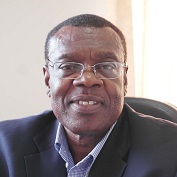 |
Edward Brown. Director of Policy Advisory Service Dr. Edward K. Brown is Director of Country Engagements and Operations at ACET. He has more than 35 years' experience in international development and public policy, half of which were spent at the World Bank. He has worked extensively in Africa, Eastern Europe and Asia. |
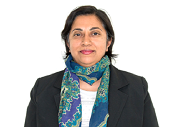 |
Bineswaree Bolaky, Economic Affairs Officer, Division for Africa, United Nations Conference on Trade and Development (UNCTAD)
Bineswaree Bolaky is an economic affairs officer at the Division for Africa, Least Developed Countries and Special Programmes in the Africa Section of the United Nations Conference on Trade and Development, (UNCTAD). Her specialization is in International Trade, Economic Development and Institutional Economics.
|
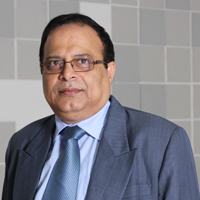 |
Arindam Banik, International Management Institute
Arindam Banik is a recognized academician on development economics, international business, trade in services and corporate governance. His fields of specialization and research include international trade and services, global financial imbalance, development economics, the structure and organization of financial markets and payment systems, technology transfer and strategic analysis of markets and economics. He started his career as a foreign exchange trader for American Express Bank, Dhaka. Professor Banik has published more than 100 articles in top academic journals in the areas of international finance, development economics, trade in services, technology transfer and agricultural economics. He taught at University of the West Indies, Cave Hill Campus, Barbados (2001-2005). He is editor of the Global Business Review, on the Advisory Board of the e-Social Sciences, Asian Business and Management and The Journal of Public Sector Policy Analysis. He holds the Associated Cement Companies (ACC) Chair Professor in International Finance and Business at IMI.
|
|
|
François Bourguignon, Professor, Paris School of Economics François Bourguignon is director of studies at the École des Hautes Études en Sciences Sociales - EHESS. Originally trained as a statistician, he earned a PhD in economics from the University of Western Ontario and a PhD from the University of Orleans. He held the position of Director of the Paris School of Economics from 2007 to the end of January 2013. His theoretical and empirical work focuses on income distribution and redistribution in developing and developed countries. Bourguignon is the author of several books and numerous articles in international economic journals. He has received during his career several scientific distinctions and taught at several foreign universities. He has a wealth of consulting experience with several governments and international organizations. From 2003 to 2007, he was the chief economist and first vice president of the World Bank in Washington. He is currently Chair of the GDN Board of Directors. |
 |
John Campbell, Jr.Program Officer, Results for Development
John Campbell is a scientist turned global health innovations specialist with over eight years of experience conducting quantitative research, most recently focused on health systems strengthening and capacity building in emerging economies.
Mr. Campbell is a program officer currently overseeing R4D’s Center for Health Market Innovations database, which documents more than 1,300 private-sector innovations in developing countries that are freely available to governments, researchers and organizations working to take transformative but also cost-effective health care solutions to scale.
|
|
|
Dhrupad Choudhury, Regional Programme Manager Adaptation to Change & Senior Livelihood and Adaptation Specialist, International Centre for Integrated Mountain Development (ICIMOD) For a little over two and a half decades, Dr Choudhury has been working among marginalized mountain communities of the Himalayas, initially as a researcher but later, progressively as a development practitioner. His focus of interest has spanned natural resource management, policy and market driven transformations, livelihood security and for the last decade, climate change adaptation and resilience building. His special areas of interest are Mountain agriculture and upland farming, particularly Transformations in Shifting Cultivation, with special focus on tenurial and access regimes and Climate Change Adaptation and Resilience Building. Significant contributions of his work has included the designing, development and successful implementation of a strategy for managing transformations in shifting cultivation areas (in an IFAD funded development project in India), and the contribution as member of the Technical Support Group for drafting the Scheduled Tribes and Other Forest Dwellers (Recognition of Rights) Bill in India, enacted as an Act of the Parliament in 2007. |
|
|
Xavier Estupinan, Wage Specialist International Labor Organization Xavier Estupinan is a wage specialist for ILO’s Decent Work Team for South Asia. He has been a Director of Wage Analysis and Undersecretary of Employment and Wages at the Ministry of Labour of Ecuador. And has served as a Technical secretary and President of the National Wage Council. He is an Economist and has a Master’s Degree in Social Science from the University of Tamkang ROC. |
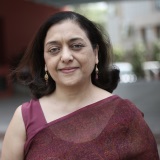 |
Sonu Goyal, Professor of Business and Corporate Strategy, International Management Institute
Dr. Sonu Goyal is a Professor of Business and Corporate Strategy at International Management Institute, New Delhi, since December 2008. Prior to that, she was a Professor of Business Strategy at IMT, Ghaziabad. She has done her Ph.D from the Faculty of Management studies, University of Delhi in the area of Strategic Management. Her doctoral research focused on the growth strategies of the Indian IT service companies and their business model.
Her research, teaching and training interests lie in the area of Industry and Competitive Dynamics, Entrepreneurship, International Business, CSR, Sustainable Development and Doing Business in Emerging Markets. She has been using case methodology as the key pedagogy for all her subjects and has rich case writing experience on diverse managerial challenges. She participated in the Global Colloquium on Participant Centered Learning at Harvard Business School at Boston in July 2012 and Harvard Center at Shanghai in March 2013. She has also been engaged in Faculty development Programs on case writing and teaching methodology. Her cases have been published in various books and journals such as Vikalpa, an IIMA journal.
|
 |
Ganesh Gorti, Climate policy researcher at the Centre for Global Environment Research at The Energy and Resources Institute (TERI)
Ganesh Gorti is a climate policy researcher at the Centre for Global Environment Research at The Energy and Resources Institute (TERI). He works at the intersection of political and social science. He is currently a part of the core research team of a five year research programme - Himalayan Adaptation, Water and Resilience Research - that is working in the glacier fed river basins of the Hindu Kush Himalaya region, and seeks to build adaptive capacities of the most vulnerable. He had also, in the past, worked closely with stakeholders to assess the preparedness of States to implement their State Action Plans on Climate Change. Apart from this he is also involved in research revolving around climate governance, specifically, the role of subnational and non-state actors in enabling climate action. His research interests include understanding the multiplicity and plurality around institutions, factors promoting/influencing effective resource governance regimes and polycentric climate governance in the Global South.
|
 |
Gopi Gopalakrishnan, President and Founder, World Health Partners
Gopi Gopalakrishnan has over 30 years of experience in implementing large-scale service-delivery programs in low-resource settings. He has founded two large organizations so far—World Health Partners which focuses on delivering primary health care to rural communities by innovatively harnessing existing resources in the poorest states of India and earlier Janani which delivers reproductive health services in Bihar and Jharkhand. Gopi’s network management strategies have been recognized worldwide as some of the most effective methods for translating the vast unmet need of underserved communities into adoption with a focus on the ‘here and now’. He has won the Skoll, Schwab (World Economic Forum) and Asian awards for social entrepreneurship.
|
 |
Livia Hollins, Associate Programme Officer, United Nations Framework Convention on Climate Change (UNFCCC)
Livia Hollins is an Associate Programme Officer in the Adaptation Programme at the UNFCCC climate change secretariat. She works with Parties to the UNFCCC and the Paris Agreement to agree on and implement action to build resilience, reduce vulnerability and adapt to the impacts of climate change. Livia currently supports the intergovernmental negotiations on agriculture, and leads the UNFCCC secretariat’s efforts to enhance efforts to effectively measure progress on climate change adaptation, in the context of the Sustainable Development Goals.Livia sees the Paris Agreement on climate change, the 2030 Agenda for Sustainable Development and Sendai Framework for disaster risk reduction as transformative and intrinsically linked agendas. She believes that the more countries build resilience and adapt to the impacts of climate change, the better prepared they are to manage risk, and the more opportunities they have for sustainable development, including for vital agricultural systems. Livia holds a masters in Sustainability Science from Lund University Center of Sustainability Studies, Sweden. She joined the UNFCCC in 2010, and has previously worked for the New Zealand Parliamentary Commissioner for the Environment, as well as Science, Technology and Innovation, and Environment Ministries.
|
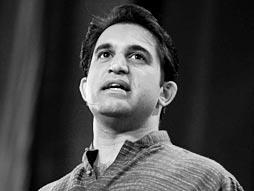 |
Dr Asher Hasan, Founder, doctHERs
Dr. Asher Hasan is the Founder and Chief Executive Officer of NAYA JEEVAN, a hybrid social enterprise dedicated to providing low-income families in the emerging world with affordable access to high quality, healthcare. Asher has previously served on the World Economic Forum (WEF) Global Agenda Council for Social Innovation (2012-2014). Additionally, he is a 2011 World Economic Forum/Schwab Foundation Asian Social Entrepreneur of the Year, a 2013 Synergos Senior Fellow, a 2009 TED fellow, and a 2011 Ashoka US fellow.
|
|
|
Bharati Joshi, Technical Director, Economic Development Unit, CARE India Bharati has over 18 years of experience in livelihood sector programming and implementation, team building at multiple levels, and program quality assurance. As Technical Director of CARE India’s Economic Development Unit, she is currently spear-heading organisation’s programming and strategizing for women’s economic empowerment. Her portfolio includes clean energy and climate adaptation initiatives. With her team, Bharati also ensures quality of and technical backstopping to CARE’s livelihood initiatives in tribal and dalit dominated geographies, wherein Gender Transformative Change, Resilience, and Inclusive Governance are three key cross-cutting themes. Before joining CARE India, Bharati has worked with different organisations in the areas of design and management of development support to grassroot NGOs, and livelihood sector action research, training, and extension, in different States. She holds a Masters degree in Extension for Natural Resource Based Livelihoods from the University of Reading (UK), an MSc in Plant Molecular Biology from Delhi University and Post Graduate Diploma in Forestry Management from Indian Institute of Forest Management (Bhopal). |
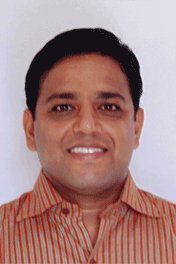 |
Reji K. Joseph, Associate Professor, ISID
Reji K. Joseph has PhD in Economics from Jawaharlal Nehru University, New Delhi. His research interests are in the broad areas of bilateral investment agreements, intellectual property rights and Indian pharmaceutical industry.
He was with the Central University of Gujarat before joining ISID. He has earlier worked with Research and Information System for Developing Countries (RIS), Ministry of External Affairs; Centre for WTO Studies, Indian Institute of Foreign Trade (IIFT), Ministry of Commerce and Industry; National Commission for Enterprises in the unorganised sector (NCEUS), Ministry of Micro, Small and Medium Enterprises; and Centre for Development and Human Rights (CDHR).
|
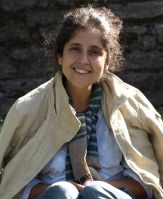 |
Reetika Khera, Indian Institute of Technology, Delhi
Reetika Khera is an assistant professor at the Department of Humanities and Social Sciences, Indian Institute of Technology, Delhi. She studied at the Delhi School of Economics (M.A. and Ph.D.) and Institute of Development Studies, University of Sussex (M.Phil.). She was a post-doctoral Research Associate at Princeton University where she worked on child nutrition. Before joining IIT-Delhi, she was a visitor at GB Pant Social Science Institute, Allahabad, Centre for Development Economics, Delhi School of Economics and the Planning Unit, Indian Statistical Institute, Delhi.
|
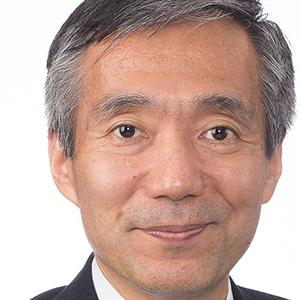 |
Dr. Naohiro Kitano, Director, JICA Research Institute (JICA-RI) Naohiro Kitano is director of the Japan International Cooperation Agency's (JICA) Research Institute (JICA-RI). He studied in the Department of Civil and Environmental Engineering at Tsinghua University in Beijing from 1981 to 1982. In 1983, he graduated from the civil engineering department at Waseda University and joined the former Overseas Economic Cooperation Fund of Japan. Prior to his current assignment, he served as an associate professor at the Graduate School of Economics at Kyoto University; as director general of the Development Assistance Department II at the Japan Bank for International Cooperation; as director general, East and Central Asia and the Caucasus Department for JICA; and deputy director of JICA-RI. He studied in the Department of City and Regional Planning at Cornell University from 1988 to 1991 and received a Ph.D. in 1997. |
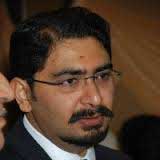 |
Ashutosh Khanna, Innovation, Entrepreneurship, IPR, Growth, Corporate Strategy, International Management Institute
Dr. Khanna holds a PhD in Innovation and Information Systems from the Department of Management at the London School of Economics and Political Science (LSE), London, U.K. He further has an MSc in Analysis Design & Management of Information Systems from the LSE, U.K. and holds a Bachelors of Engineering in Computer Engineering from Mumbai University. He has over 15 years of rich experience in consulting, academia and entrepreneurship in U.K., Europe and India including Business Start-Ups, Innovation Strategy, Intellectual Property & Rights Management, and Corporate Web 2.0. Currently he is working with large Central Public Sector Enterprises of India, exploring their Innovation Capacities with the intent of redefining and hence developing their Innovation Strategy to enhance their competitiveness and grow sustainably.
|
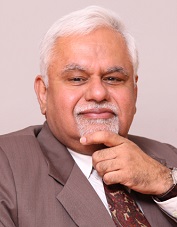 |
Anupam Khanna, Chief Economist and Director-General of Policy Outreach, National Association of Software and Service Companies Dr. Anupam Khanna has been chief economist and director-general of policy outreach and chief economist at National Association of Software and Service Companies since September 2011. Dr. Khanna has worked for 30 years with the World Bank in Washington DC, the last five as senior manager, Policy Support.
|
|
|
Saibal Kar, Professor of Economics at the Centre for Studies in Social Sciences, Calcutta (CSSSC) He is currently professor of economics at the Centre for Studies in Social Sciences, Calcutta (CSSSC), India and a Research Fellow of the Institute for the Study of Labor in Bonn, Germany. He has been professor of economics, Calcutta University and has taught in Presidency University and other places in India. He was a Research Fellow of the prestigious Alexander von Humboldt Foundation in Germany during 2008-09. He held visiting positions at University of Amsterdam, Santa Fe Institute, Hamburg University, University of East Anglia, United Nations University- Helsinki, etc. His research interests are broadly in the areas of Labor Economics, International Economics and Applied Microeconomics. He has published many papers and books published by OUP, Springer, Elsevier, Wiley, etc. in these areas. He is the Managing Editor, South Asian Journal of Macroeconomics and Public Finance (Sage). |
 |
Beryl Leach, Deputy Director and Head of the Policy, Advocacy and Communication Office (PACO).
As the head of the PACO team, Beryl leads and provides strategic direction to 3ie’s work in supporting the uptake of policy messages based on impact evaluations and systematic reviews, promoting commitment to evidence-based policymaking and translating knowledge through 3ie’s integrated approaches to communication. Her current research focus is on building understanding of the production and use of evidence in development policymaking processes.
|
 |
Gaston Meskens, Lecturer, Department of Philosophy and Moral Sciences Gaston Meskens is a researcher in philosophy, lecturer, writer and artist with an academic background in science (Master in Theoretical Physics with an orientation in nuclear physics, quantum mechanics and cosmology from the University of Ghent, Belgium). He currently works part-time with the Centre for Ethics and Value Inquiry of the Faculty of Arts and Philosophy of the University of Ghent (Belgium) and with the Science and Technology Studies group of the Belgian Nuclear Research Centre SCK•CEN (Belgium). |
|
|
Nafees Meah, Country Representative for South Asia, International Rice Research Institute (IRRI) Dr. Nafees Meah works with governments of the South Asian Association for Regional Cooperation (SAARC) countries, including Nepal, Bangladesh, and India to represent and coordinate IRRI’s programs regionally. He also leads the development of a regional strategy and supports the development of individual country strategies for IRRI’s research, outreach, training, and resource mobilization activities in consultation with key universities, civil society organizations, and international donors and organizations. Prior to joining IRRI, Nafees served as director of the UK Research Councils (RCUK) India from 2012 to 2016. |
|
|
Anit Mukherjee, Policy Fellow at Centre for Global Development Anit Mukherjee is a policy fellow at the Center for Global Development where he works on issues of governance, public finance, and service delivery in developing countries. His current research focuses on the impact of biometric ID and digital payment systems to reform public subsidies, improve financial inclusion, and promote gender empowerment. Prior to joining CGD, Mukherjee was an associate professor at the National Institute of Public Finance and Policy in New Delhi from 2005-2013 where he designed and implemented innovative citizen-led public expenditure tracking surveys in education and health. As a policy advisor to the world’s largest biometric ID program, Aadhaar, he was involved in the design of direct benefit transfer of subsidies in India. Previously, Mukherjee has served as MDG financing advisor to the Government of Yemen, worked as a consultant for the World Bank and UNAIDS on financing of HIV/AIDS programs in Asia-Pacific, and designed gender-focused social protection as advisor to the Commonwealth Secretariat. Mukherjee studied economics at Presidency College, Calcutta, and Jawaharlal Nehru University, Delhi, and obtained a PhD in policy and planning sciences from the University of Tsukuba, Japan. He has published extensively in peer-reviewed journals and has been cited in major news outlets including Bloomberg, BBC, Financial Times, and NPR. His latest book, Social Sector in a Decentralized Economy: India in the Era of Globalization, was published by Cambridge University Press in 2016. |
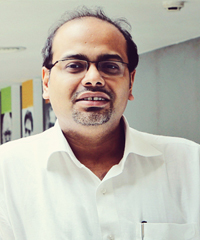 |
Tirthankar Nag, Dean (Research & International Relations) and Professor, IMI Kolkata
Dr. Nag teaches strategic management, research methods, managing consulting engagements and developing infrastructure businesses. He has been teaching as a visiting faculty for doctoral courses in the energy sector at IIM Ahmedabad and strategic management at IIM Calcutta. He has authored a book and several book chapters, and peer reviewed papers in international journals. He has received several awards from IIM Ahmedabad and holds a certificate from the World Bank Institute. He also has a BE in electrical engineering from Jadavpur University. He has been a consultant for companies in the energy and water space on behalf of PWC, KPMG, and SBICAPS, dealing with strategy, policy and regulatory advisory.
He has also worked with CESC in distribution planning. He has provided advisory services to Indian and international organizations in the energy sector, including World Bank, UNEP, DFID, USAID and ADB.
|
 |
Rishiskesh Prathiban, IIM Calcutta
Rishikesh is a Fellow Progamme in Management, MIS. He completed his B.E(Hons.) in Electrical and Electronics Engineering - BITS Pilani. Priviously he worked as ASIC (Hardware) Design Engineer, Concept2Silicon Systems India Pvt. Ltd., Bangalore from July 2013-May 2015. He also worked as a Business Analyst in the Airport Data Intelligence team, focusing on Automation and Business design.
|
|
|
Jyoti Parikh, Executive Director of the Integrated Research and Action for Development (IRADe) Professor Jyoti K Parikh, Executive Director of (IRADe) was a Member of the Prime Minister’s Council on Climate Change – India and is a recipient of Nobel Peace Prize awarded to IPCC authors in 2007. She served as the senior professor and Acting Director of Indira Gandhi Institute of Development Research (IGIDR), Mumbai 1986-2003, International Institute for Applied Systems Analysis (IIASA), Austria for 8 years (1980-86, 76-78) and Planning Commission, as senior energy consultant at New Delhi (1978-80). She has served as energy consultant to the World Bank, the U.S. Department of Energy, EEC, Brussels and UN agencies such as UNIDO, FAO, UNU, and UNESCO, Environment Consultant to UNDP, World Bank and so on. She worked as an advisor to various ministries for Gov. of India. She obtained her M.Sc. from University of California, Berkeley, in 1964 and Ph.D. in Theoretical Physics from University of Maryland, College Park in 1967. She has guided 12 Ph.D. theses in energy, environment and climate change and given lectures in more than 40 countries around the world. |
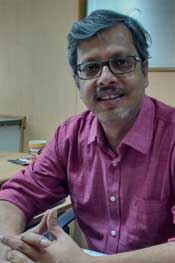 |
Satyaki Roy, Associate Professor, ISID
Dr. Satyaki Roy currently working as Associate Professor at the Institute for Studies in Industrial Development (ISID), New Delhi did his Masters in Economics from Jadavpur University and Ph.D. from the University of Calcutta.
His initial research focuses on industrial clusters in India and the nature of spatial concentration of production in the context late industrialization. His work on industries focuses on labour intensive sectors such as garments, leather, foundries as well as developments in automobiles and surgical instruments. He worked on various projects sponsored by the Indian Council for Social Science Research (ICSSR); Planning Commission, Government of India; Department of Science and Technology, Government of India and inter-country comparative studies sponsored by International Development Research Centre (IDRC), Canada and Institute of Developing Economies (IDE), Japan.
|
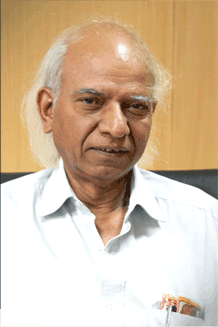 |
Hariharan Ramachandran, Visiting Professor, ISID
Hariharan Ramachandran was Professor in the Department of Geography, University of Delhi (2005-12). He has earlier been Director, Institute of Applied Manpower Research, Planning Commission (2000-2005), and Executive Director, National Research and Resource Centre, LBS National Academy of Administration, Mussoorie (1997-2000).He has authored / edited eight books and over 50 articles in national and international journals. He specializes in Urban / Regional Development, Quantitative Methods and Programme Evaluation. He has travelled across thirty countries relating to his professional activities.
|
 |
Merve Sancak, University of Cambridge Merve is a PhD candidate in Sociology at the University of Cambridge. In her research, she conducts an institutional analysis of vocational education and training systems in Mexico and Turkey, with a special focus on the local automotive industry. She compares the effects of national and global factors on firms’ behaviour and the impact of these on firms and workers. She received her undergraduate degree in Economics and International Relations from Koc Universtity, Istanbul. During this, she also studied at Bocconi University, Milan for one semester, where she focused her studies on the politics and economics of the European Union. After, she completed her Master of Science degree at the University of Oxford in Comparative Social Policy, where she completed her thesis on comparative political economy of pension reforms in Greece and Turkey. Upon her master’s degree, she worked in policy research and implementation. |
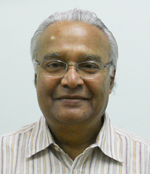 |
Pradeep Singh Mehta, Secretary-General, CUTS International, India
Pradeep S Mehta (64) is the founder secretary general of the Jaipur-based Consumer Unity & Trust Society (CUTS International), one of the largest consumer groups in India, with offices in London, Lusaka, Nairobi, Hanoi and Geneva. Established in 1983/84, CUTS International has now completed 30 glorious years. Mehta studied at The Scindia School, Gwalior (higher secondary), St Xavier’s College at Calcutta (B. Com) University and law at the Rajasthan University, Jaipur.Mehta serves/has served on several policy making bodies of the Government of India, related to trade, environment and consumer affairs, including the National Advisory Committee on International Trade of the Ministry of Commerce and its working groups. He chairs the Advisory Board of the South Asia Network on Trade, Economics and Environment, Kathmandu. |
 |
Erin Swearing, Senior Program Associate, Results for Development
Erin Swearing is an international development professional with a specialty in the water, sanitation and hygiene (WASH) and health sectors in low- and middle-income countries.
As a Results for Development program associate, she works on the Center for Health Market Innovations, focusing on facilitating learning exchanges (and after each session, feedback lessons) for private sector organizations working to increase access to health care services. Previously, she worked on the water, sanitation and hygiene issues, supporting program implementers in various countries again through a learning exchange system, the WASH Impact Network.
|
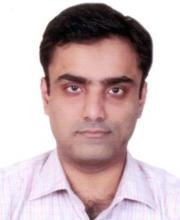 |
Neeraj Trivedi, Senior Research and Training Manager Neeraj is the Senior Research and Training Manager at Evidence for Policy Design (EPoD), IFMR in India. He leads the capacity building portfolio of EPoD in India that focuses on building capacities of policymakers and government agencies to use evidence and economic theory for decision-making. Simultaneously, Neeraj also manages a couple of research projects in the gender and financial inclusion portfolio of EPoD India. Prior to EPoD, Neeraj was with Pratham, a leading educational non-profit in India, for around seven years. At Pratham, Neeraj managed large-scale school- and community-based education programs in the states of Uttar Pradesh and Bihar. He also led capacity building initiatives with government functionaries and non-government organizations on using evidence to translate policy into practice. His core interest lies in ensuring access to quality education to all children across the world, including the most vulnerable ones. |
|
|
Cecilia Ugaz Estrada, Director, Department of Policy Research and Statistics, UNIDO Prior to joining the United Nations Industrial Development Organization (UNIDO), Cecilia Ugaz Estrada served as the United Nations resident coordinator as well as the United Nations Development Programme (UNDP) resident representative for Paraguay. She also served as the deputy resident representative for UNDP in Argentina and as deputy director for the Human Development Report Office in UNDP headquarters in New York. |
 |
Dirk Willem te Velde, Head of Programme - International Economic Development Group
Dr Dirk Willem te Velde is a principal research fellow and head of the International Economic Development Group. He is the director of Supporting Economic Transformation and a Research Leader for the DFID-ESRC Growth Research Programme. He has published widely on trade, investment and economic transformation. He has advised country governments and parliaments in Africa, Asia and the Caribbean, and donor agencies such as DFID, European Commission, UN and the World Bank. He was also Team Leader for the European Report on Development (ERD) 2015 on Combining Finance and Policies to Implement a Transformative Post-2015 Agenda.
|
 |
Howard White, Chief Executive Officer, Campbell Collaboration.
Howard White is chief executive officer of the Campbell Collaboration. Previously he was the founding executive director of the International Initiative for Impact Evaluation (3ie), and before that, he led the impact evaluation program of the World Bank's Independent Evaluation Group. White started his career as an academic researcher at the Institute of Social Studies in The Hague, and the Institute of Development Studies, University of Sussex. As an academic, he leans toward work with policy relevance and working in the policy field leans toward academic rigour as a basis for policy and practice. His other interests are running and walking, preferably long distances in remote places, and reading English history.
|
 |
Masaru Yarime, Associate Professor at the School of Energy and Environment, City University of Hong Kong Dr Masaru Yarime is Associate Professor at the School of Energy and Environment, City University of Hong Kong, where he works on science, technology, and innovation policy, management, and governance, focusing on the implications of digitalisation and globalisation of innovation including smart cities and IoT for sustainability particularly in the context of Asia and beyond.
He was previously Project Associate Professor of Science, Technology, and Innovation Governance (STIG) at the Graduate School of Public Policy of the University of Tokyo.
|
RESOURCES
Themes & Focus Areas | Agenda | Speaker Bios | Conference Partners | Awards | Registration & Logistics | Venue Maps | Sponsor this event | Conference Media | Live Webcast








